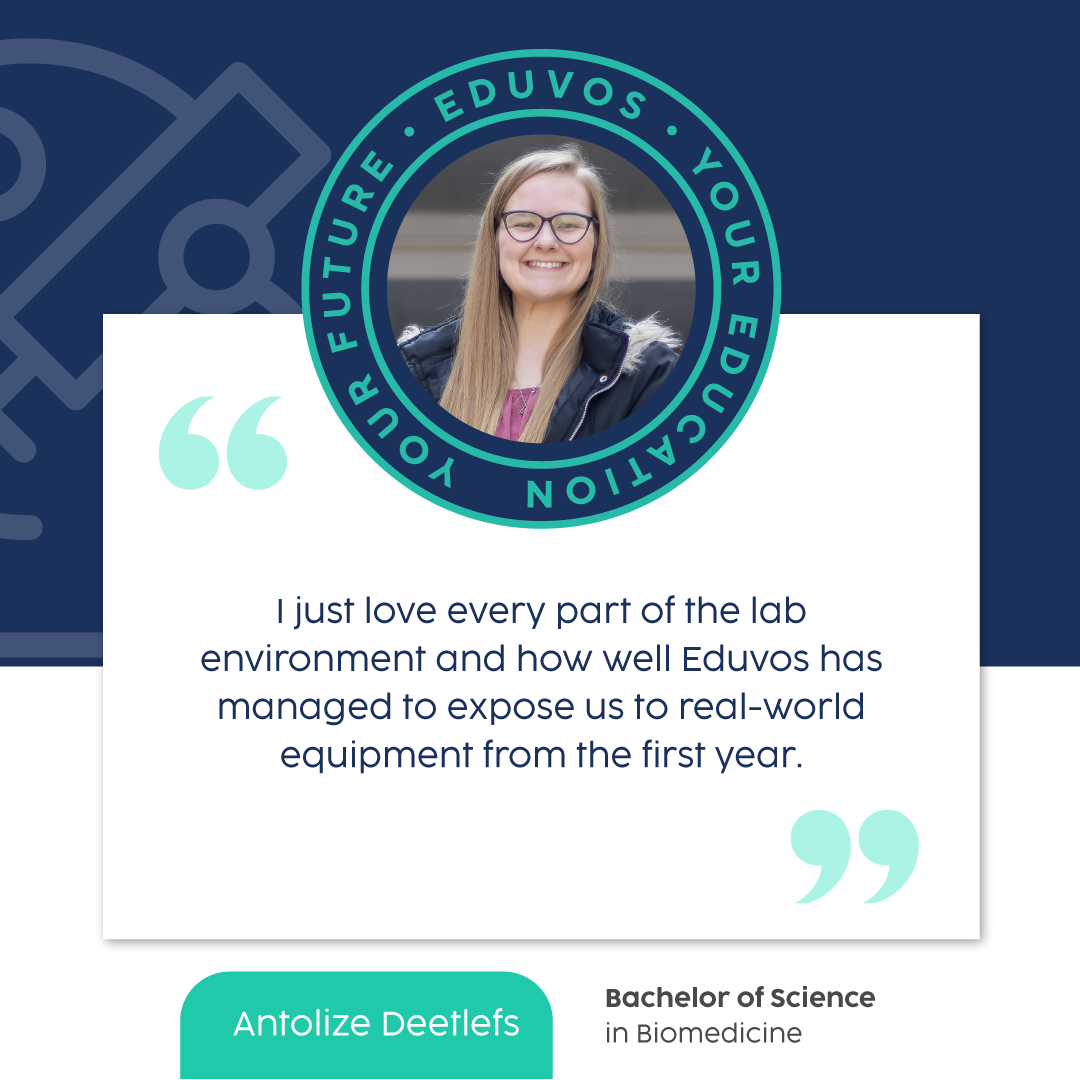Research at Eduvos
Empowering Sustainable Development in Africa.
Overview.
Eduvos’s Research Agenda for 2023 to 2027 is “Empowering Sustainable Development in Africa”. This is in line with the institution’s vision of “Shaping potential, student by student, towards Africa's prosperity,” while emphasising the need for sustainable development and positive societal change.
At Eduvos we believe it is critical that we empower individuals, communities, and industries through meaningful research to drive and ensure lasting transformation in Africa.


The purpose of the research agenda is to guide and prioritise research efforts in line with the institution's mission and vision. The research agenda provides a roadmap for identifying and driving research activities across Eduvos.
The objectives of the research agenda are: To conduct research that drives transformative change in Africa, addressing societal challenges and promoting sustainable development Support the development of a skilled workforce by engaging in research that enhances knowledge, skills, and innovation in various disciplines Align research efforts with the SDG, AU Agenda 2063, and SADC Vision 2050 to contribute to regional development goals Conduct research that directly addresses the targets and indicators of the Sustainable Development Goals (SDGs) Align research efforts with the AU Agenda 2063's aspirations for a prosperous and integrated Africa Focus research on key areas identified in the SADC Vision 2050 for sustainable regional development
Research Agenda Focus Areas and Research Themes:
Advancing Social Justice and Legal Equality for a Prosperous Africa
This research agenda emphasises the promotion of social justice, human rights, and effective governance mechanisms. This research agenda addresses the following SDGs: 5 (Gender Equality), 10 (Reduced Inequalities), 16 (Peace, Justice, and Strong Institutions), and 17 (Partnerships for the Goals).
By addressing these areas, the theme aims to contribute to the promotion of a just and equitable society, protect human rights, strengthen democratic institutions, and foster economic prosperity in Africa. It also supports the development of a skilled labour force by empowering individuals with knowledge and understanding of their rights, responsibilities, and effective governance mechanisms.
Enhancing Organisational Performance, Sustainable Business, Entrepreneurship and Management Practices
The research focuses on investigating various aspects of human resource management, entrepreneurship, business management, organisational behaviour, strategic management, financial management, and tourism management. By exploring these areas, the theme aims to contribute to the development of effective management practices, sustainable business growth, and economic prosperity in Africa.
The research in this area helps shape students' potential by fostering a mindset of innovation, sustainability, and ethical business practices.
This research area reflects an emphasis on diversity management, entrepreneurship, small business development, sustainable cities and communities. It investigates sustainable business models, responsible entrepreneurship, and the role of businesses in promoting sustainable development.
This research agenda aligns with SDGs: 5 (Gender Equality), 10 (Reduced Inequalities) SDGs 8 (Decent Work and Economic Growth), 9 (Industry, Innovation, and Infrastructure), and 11 (Sustainable Cities and Communities).
Data Science and AI for Social Impact
This research agenda places emphasis on leveraging data science, AI, software engineering, mobile computing, security, network engineering, data privacy, ethics, cloud computing and emerging technologies to drive positive change and address societal challenges in Africa. By leveraging these cutting-edge technologies, the theme aims to drive innovation, address societal challenges, and contribute to Africa's progress and prosperity.
This research agenda aligns with SDGs: 4 (Quality Education), 9 (Industry, Innovation, and Infrastructure), and 17 (Partnerships for the Goals) AU Agenda 2063, SADC Vision 2050, and reflects the institution's commitment to technological innovation, digital transformation, and responsible use of data-driven technologies.
Advancing Biotechnology and Biomedicine for Sustainable Agriculture, Health, Water, and the Environment
This research agenda addresses the fundamental needs of the continent and goals such as good health and well-being, clean water and sanitation, zero hunger and climate action.
The research agenda aims to explore the diverse areas of biotechnology and their applications in agriculture, healthcare, and the environment. Related fields include microbiology, agricultural biotechnology, molecular biology and biochemistry, medical biotechnology, pharmacology, industrial and environmental biotechnology, analytical chemistry, agricultural biotechnology, and various plant sciences. By focusing on these focus areas, the theme seeks to contribute to sustainable development, food security, improved health outcomes, and environmental conservation.
Empowering Diversity, Wellness, and Innovative Education
This research agenda explores the intersections of representation, identity, social change, language, culture, mental health, education, technology, and technique and craft. By exploring these intersections, the institution aims to empower students to address societal challenges, promote inclusivity, and enhance overall well-being in African communities.
This research agenda also aligns with the regional frameworks of SDG, AU Agenda 2063, and SADC Vision 2050, and reflects the institution's commitment to inclusive representation, cultural preservation, well-being promotion, innovative education, and sustainable development.
Testimonials






